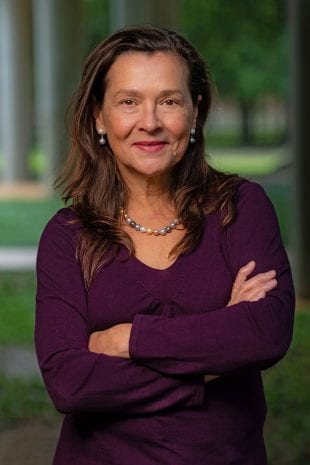Rice U. pioneer wins 2019 ACS Nano Lectureship Award for the Americas
Rice University nanoscientist Naomi Halas has been chosen by the American Chemical Society to represent the Americas as the winner of a coveted 2019 ACS Nano Lectureship Award.
The awards, established in 2012, honor the contributions of scientists whose work has significantly impacted the fields of nanoscience and nanotechnology. Only three are awarded each year, with one awardee each from the Americas, Europe/Middle East/Africa and Asia/Pacific.
Halas will present her award lecture at ChinaNano, the eighth International Conference on Nanoscience and Technology, which will be held in Beijing Aug. 17-19.
Halas is the Stanley C. Moore Professor of Electrical and Computer Engineering in Rice’s Brown School of Engineering, director of Rice’s Smalley-Curl Institute and a professor of chemistry, bioengineering, physics and astronomy, and materials science and nanoengineering.
A pioneer in the study of light-activated nanoparticles and their possible uses, Halas is the first person in the university’s history to be elected to both the National Academy of Sciences and the National Academy of Engineering for research done at Rice. Her discoveries have wide-ranging applications in areas as diverse as cancer treatment, optoelectronics, photocatalysis, chemical sensing, solar-powered distillation and steam production, and off-grid water treatment.
Halas is the author of more than 300 refereed publications, and her work has been cited more than 85,000 times. She is a member of the American Academy of Arts and Sciences and a fellow of the National Academy of Inventors, the American Association for the Advancement of Science, the Materials Research Society, the Optical Society, the American Physical Society, the International Society for Optical Engineering and the Institute for Electrical and Electronics Engineers.
Published monthly, ACS Nano is an international forum for the communication of comprehensive articles on nanoscience and nanotechnology research at the interfaces of chemistry, biology, materials science, physics and engineering.


